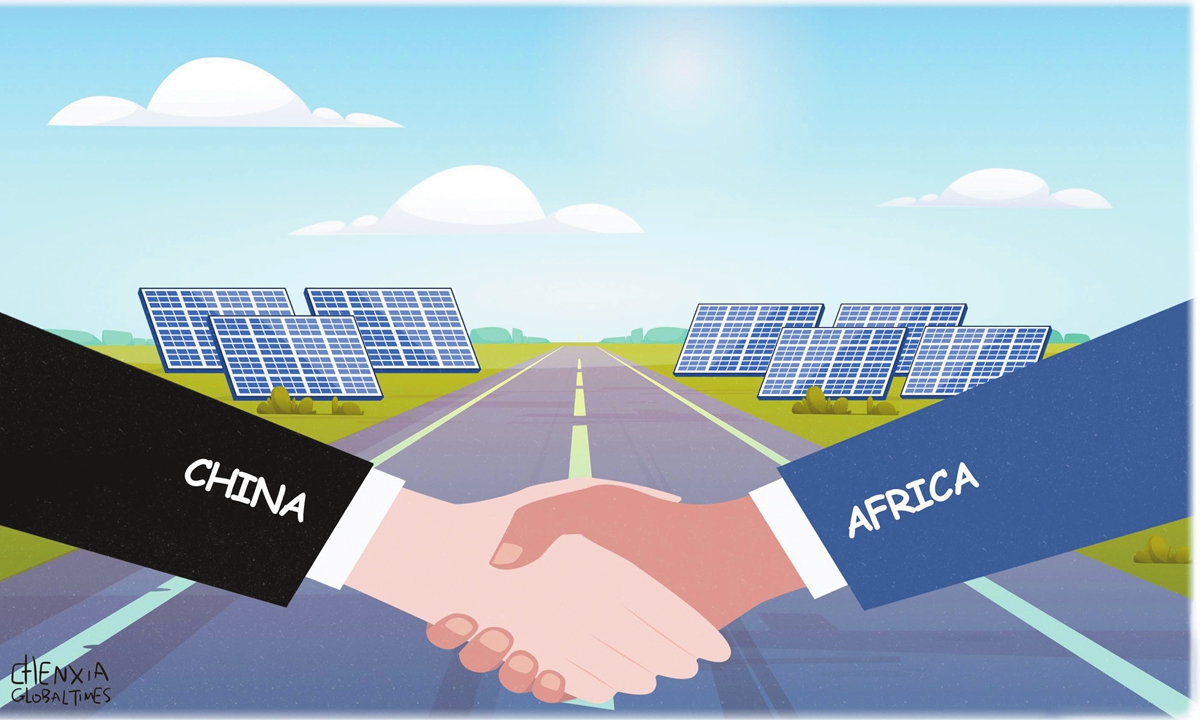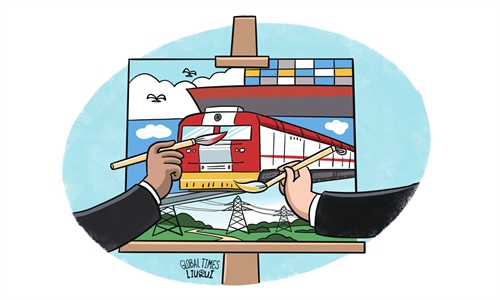
Illustration: Chen Xia/GT
It is hard to keep a commitment because most of the time, we base it on our feelings which can change easily. But when a commitment can be kept for 35 years and beyond, the reason is telling.
As his first overseas trip in the new year, Chinese Foreign Minister Wang Yi, also a member of the Political Bureau of the Communist Party of China Central Committee, has kick-started his trip to the four African countries of Namibia, the Republic of the Congo, Chad and Nigeria, which he described as a longstanding tradition and a distinctive hallmark of China's diplomacy, consistently upheld for 35 years.
Huang Lizhi, a lecturer from the School of African Studies with Beijing Foreign Studies University, told the Global Times that this longstanding tradition proves that China-Africa friendship is deep-rooted and time-honored.
"On one hand, the China-Africa friendship has remained unchanged over time. On the other hand, its essence advances in accordance to global currents. At the beginning of their relations, they supported each other's causes, and now they support each other to realize modernization through their own development path," Huang said.
When analyzing China-Africa relations, many observers tend to do it through an economic lens. But nowadays, economic cooperation is just one dimension of this relationship. The choice of the four African countries this year reflects the width and depth of cooperation between China and Africa.
China and Namibia have extensive cooperation in energy and infrastructure. Meanwhile, Namibia just elected its new president and Wang's visit is a chance for both sides to exchange ideas on international affairs. The Republic of the Congo is the African co-chair of the Forum on China-Africa Cooperation (FOCAC). The two sides have a lot to work on so as to implement the Beijing Declaration, which was adopted at last year's FOCAC summit.
Stability and peace could be the focus of the agenda during Wang's trip to Chad, as stability in central Africa has become a hotspot issue for the international community. Nigeria, the most populated country and a fast-developing and major economy in the region, wields a strong influence in the African Union. Boosting cooperation between China and Nigeria is vital to the comprehensive development of the entire Africa.
Huang believes that all these relationships, along with China's 35-year-long tradition to send its foreign minister to Africa as the first overseas visit each year, reflect how China views Africa.
Shen Xiaolei, deputy director at the Division of Political Studies, China-Africa Institute, told the Global Times that mutual trust and respect is the basis for China's unwavering stance toward Africa. China is telling the world how Africa should be respected and valued as an equal partner.
In his address to the United Nations General Assembly in September last year, Togo's President Faure Essozimna Gnassingbé stressed that Africa deserves greater respect and attention on the international stage. "The voices of Africa must be elevated and heard in international arenas," he said.
African countries value equality and respect. No wonder some Western countries, which often hold a bossy attitude when dealing with Africa, are losing the hearts and minds of Africa. Two African scholars, when commenting on US-Africa relations, noted, "there has been a mismatch between the rhetoric and practice of an equal partnership."
China pays heed to Africa's demands and demonstrated to the world that its partnership with Africa, now elevated to an all-weather China-Africa community with a shared future for the new era, is one of equals through its sincere and concrete actions. The inner momentum of China-Africa relations will always stand the test of times and drive the relations deeper and further.


